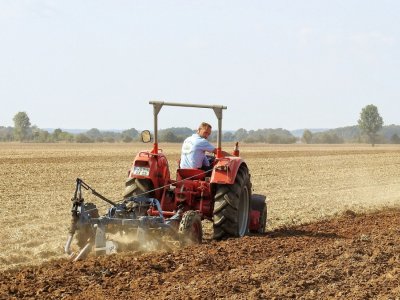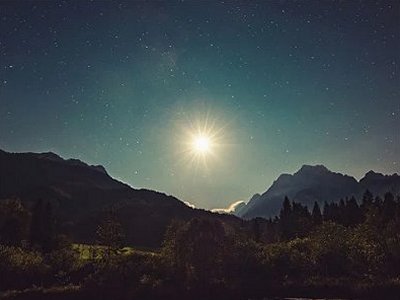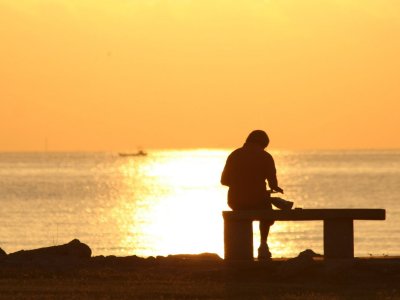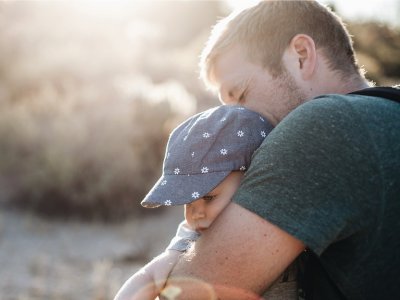
THE FARM
It was said years ago that we live in an era of anxiety. This was before the decade began on day one with a pandemic which morphed into a cost of living crisis. The 2020s are already notorious and may become more so. But not everyone is equally damaged by the decade. Some suffer more than most and one of those hidden cohorts is the farming community.
Labour shortages generated by Covid and Brexit have cut deeply, as have the loss of EU subsidies. There is an expectation that food production will increase without degrading the environment and that this food will be of an ever higher quality. High inflation hits margins and farmers are squeezed ever more tightly by the big supermarkets. There is poverty among agricultural workers. And then there is climate change, where seasonally unusual conditions and extreme weather events wreak havoc with some harvests.
Anxiety is especially hard to deal with when you can’t control your environment or the outcomes, leaving you feeling exposed to random and capricious sources. This is compounded when people do not understand your circumstances, and for years now, there has been a widening divide between urban and rural - a division which could be lessened with some sympathetic listening and a recognition of our mutual responsibilities and our shared destiny on the island of Britain.
A division which is challenged by Rochester’s annual Plough Sunday service in support of farmers.
For all the technological advances we are making and the smart ways we are increasing yield, this service speaks into that place of anxiety where nothing is guaranteed in life. For years, those with less understanding of agriculture have assumed their food security. The fragility of supply chains exposed by the pandemic and the accelerating pace of climate change is probing this false sense of security. It is a new and unwelcome experience, but one long understood by agriculture and one experienced on an annual basis in some parts of the world where a warming planet is tearing apart the social fabric.
Last year I attended the Lambeth Conference of Anglican bishops from across the world. One of the themes was climate change, but the bishops engaged with it in different ways. For people like me there was a dawning realisation not all is right, where these effects are starting to show. For bishops from the global south, especially Africa, it had been a present reality for years, devastating crops, generating famine and creating waves of migrants.
There are at least three things we are doing in the service today. The first is to help people have a sense of the faithfulness and promises of God to them and their households in a time of trouble. It is fascinating to see the way the whole idea of security has taken hold of our national life. Politicians on each side of the political divide talk frequently now of security as a deliverable. Not just freedom from war and terrorism, but the security that comes from having a house to live in, money to pay bills, goods to buy that keep us alive and healthy. It is a sign of how precarious life has become that what we took for granted two decades ago is no longer assumed.
But we can’t leave it to political platforms to talk about security. It lies at the heart of the Gospel. God is a very present help in time of trouble, the Psalmist tells us. He holds each of us by the right hand. He knows our needs because he has lived them personally and he invites us into a healthy dependency where we trust him for the things we don’t control in life, as well as the things we do. This is the message he wants us to share.
Today we consciously place into his hands the work and the outcomes of the agricultural year; praying for kind conditions, a good yield and the welfare of those who harvest it.
The second thing we do is to see the mysterious relationship between the seed and the word of God. Surrounded by agricultural work, Jesus drew heavily on its imagery to stimulate how we think about God. The word of God is planted in people, in communities, like seeds are buried in the soil. It grows in hidden places, but erupts into daylight as it matures. We know this, because we have heard it a hundred times. But there is also ambiguity.
In Isaiah 55, it says that God’s word ‘shall not return to me empty’, but grow like a seed. Yet in the Parable of the Sower, the story clearly shows that some seeds fall on rocky ground and come to nothing. God’s word is sometimes snatched away from human hearts and comes to nothing, while other times it produces a big harvest. Like the natural world, it isn’t as simple as feeding a coin into a vending machine. And there is a special challenge today round God’s word, and that’s the complete information overload we have, the distraction it makes, which submerges God’s word, just like the extreme weather event of an Atlantic storm deluges the crop and makes it useless.
Both the spread of God’s word and the fertility of the soil need prayer – lots of it – to bring about the desired result. This is also why we are here today.
Thirdly, we are here to dignify and show gratitude to the people who work in agriculture. It is difficult, precarious work – however big or small the business is – and it is relentless. Rural life is less understood today, as more people are born and brought up in towns and cities. This can lead two ways: to a romanticised view of rural life which is untrue and does no-one any favours; or to a dismissive view of rural life which sees it as only as the pitiless venue for environmentally damaging practices. This polarity cannot be allowed to deepen. We are one people, living in one land, dependent on one another and on one God. It’s why we are here today and why, when we go our separate ways later, we won’t forget each other, and the dependency we share.
POPULAR ARTICLES

God In The Cow Shed
2020 has been dominated by the C word. Not that C word. I mean conspiracy theory involve space. Some people believe the

Viral With The Holy Spirit
Since the tech revolution, insurgent new start-ups have enjoyed using the word ‘disruption’

Long Lost family
Some types of storytelling mess with your brain. Intentionally. Like one of those novels where you assume

Valuing Age
Lots of work is being done round unconscious bias in society, especially around gender and ethnicity

